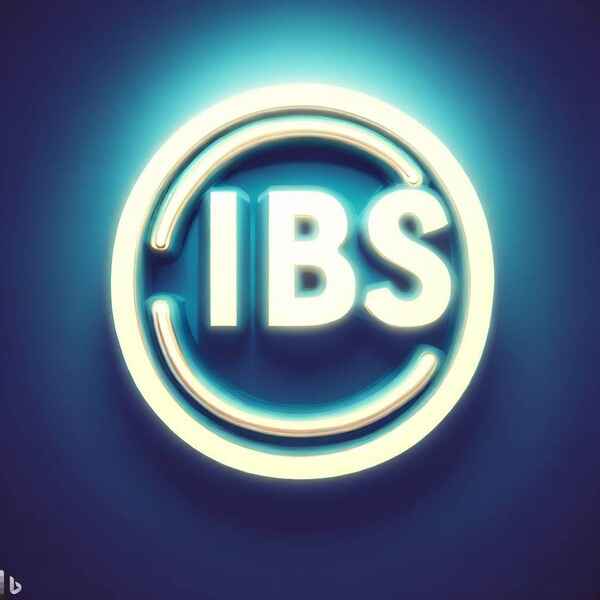What is IBS?
Irritable bowel syndrome (IBS) is a condition that causes abdominal pain and changes in bowel motions. IBS is a condition that causes stomach pain, cramping, and bowel movement disturbances. It is classified as a functional bowel problem and is not a disease.
It is twice as prevalent in women as it is in men. It can occur at any age, although most people acquire it as teenagers or in early adulthood. A poor diet can also cause IBS. Some people may be unable to work, travel, or attend social gatherings because of their symptoms, while others may have to live with IBS for the rest of their lives.
Causes of Irritable Bowel Syndrome
The exact cause of IBS-D is unknown. There are most likely multiple factors to consider. Some individuals’ intestines may contract quickly, which can result in both pain and quicker stoma movement. This reduces the amount of time the intestine has to absorb water from the food being digested, which results in loose or watery stools.
Some patients who had previously experienced a gastrointestinal infection go on to acquire IBS-D for unknown causes. Post-infectious IBS is the term used when this happens. It can persist after a gastrointestinal infection for weeks, months, or even years.
Sensitivity or allergy to particular foods may also be a factor for individuals with IBS-D. After consuming particular food elements like lactose or gluten, many people have symptoms. In some situations, symptoms can be alleviated by avoiding foods that contain those substances. Regrettably, standard allergy testing is not a reliable method of determining which foods are contributing to IBS symptoms.
Due to their sensitivity, some IBS sufferers experience pain or discomfort from gas or bowel spasms more intensely than normal people.

Symptoms
The most common symptom of IBS is stomach pain or discomfort caused by a change in bowel movements.
Other signs and symptoms include:
- Mucus in the stool.
- Urgency.
- A sense of incomplete evacuation.
- Migraines.
- Sleep disruptions.
- Depression or anxiety.
- Fibromyalgia.
- Pelvic pain that endures.
Risk factors
Factors that can affect include:
- Muscle contractions in the intestine.
- Nervous system.
- Severe infection.
- Early life stress.
- Changes in gut microbes
- Anxiety or depression.

Diagnosis
The diagnosis is determined after a thorough physical examination and medical history. Doctors use the Rome criteria, which is a collection of specific symptoms and circumstances that might assist establish whether someone has IBS-D. The existence of stomach pain or discomfort, as well as a change in bowel habits, are the most important of these factors. There are no laboratory or imaging procedures that can confirm an IBS-D diagnosis. However, limited testing (such as blood work or imaging scans) may be required to ensure that the symptoms are not caused by another ailment.
Also, Read Complete Guide on Dementia: Causes, Symptoms, and Care Tips
Treatment
The purpose of treatment is to relieve symptoms. Lifestyle changes can help with IBS in certain circumstances. Dietary modifications can be beneficial. There isn’t a single treatment that is effective for everyone.
Controlling intestinal muscular spasms requires the use of anticholinergic medications, such as dicyclomine, propantheline, belladonna, and hyoscyamine, around 30 minutes before eating.
- Loperamide is used to treat IBS-D.
- Lotronex (alosetron) for IBS-D
- IBS-D treatment with eluxadoline (Viberzi).
- Probiotics
- Tricyclic antidepressants at low doses to assist in relieving intestinal pain Lubiprostone (Amitiza) for IBS-C
- Bisacodyl is used to treat IBS-C.
- Linaclotide (Linzess), an antibiotic, is used to treat it-C.
- Psychological therapy or medications for anxiety or depression may be beneficial.
Diet
- Eat more fiber
- Avoid Gluten
- A low FODMAP diet should limit or avoid some foods that contain difficult-to-digest carbs
- Eat Eggs and lean meats
- Drink eight 8-ounce glasses of water each day.
- Caffeine (found in coffee, chocolate, teas, and sodas) should be avoided.
- Limit your intake of cheese and milk. The prevalence of lactose intolerance is higher in IBS patients. Calcium should also be obtained from other sources, such as broccoli, spinach, salmon, or supplements.
- Keep track of what you consume so you can determine which foods cause it’s flare-ups. Red peppers, green onions, red wine, wheat, and cow’s milk are all common triggers.
Prevention
- Avoid meals that aggravate your symptoms.
- Consume high-fiber foods.
- Drink plenty of water.
- Get plenty of rest.
- Exercise daily.
- You should not smoke.
- Experiment with relaxing techniques.
- Lowering stress (talk therapy, mindfulness, hypnotherapy, and meditation practices may be beneficial)
Also, Read What is Meditation Therapy: Principles, Uses, Working, Benefits





